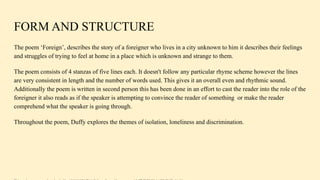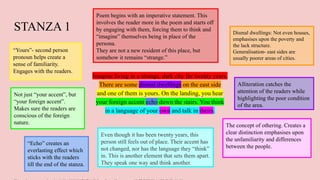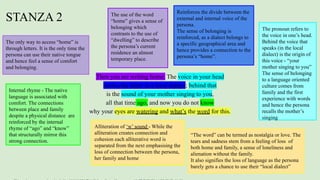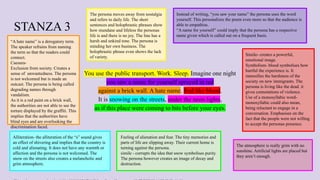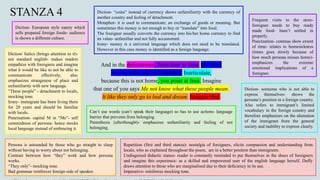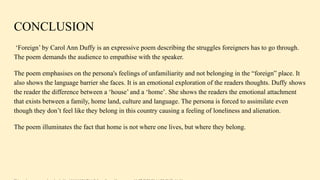The poem "Foreign" by Carol Ann Duffy describes the experiences of a foreigner living in a strange city for twenty years. Over four stanzas, the poem explores themes of isolation, loneliness, and discrimination faced by the foreigner. While going through the daily routines of using public transport and working, the foreigner feels a strong sense of not belonging, made worse by seeing a hateful name sprayed against a wall. Interactions like struggling to purchase food due to an inability to understand or translate currency emphasize the language barrier and alienation experienced living in a place that is not truly home.

